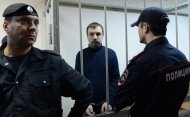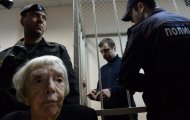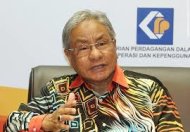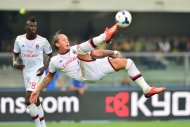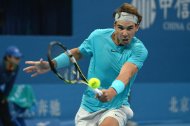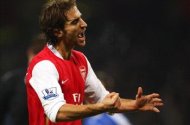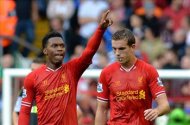Diplomatic momentum is building to bring Syria's warring parties together for peace talks, but with Bashar al-Assad in no mood for concessions and his opponents still deeply divided there is little prospect for an early end to the catastrophic civil war.
Hopes that the long-delayed talks may finally go ahead in Geneva next month have been boosted by the rare sight of Washington and Moscow cooperating to eliminate Syria's chemical weapons and hints of a U.S. thaw with Assad's ally Iran.President Vladimir Putin said on Tuesday Russia and the United States had a common understanding on disarming Syria's chemical arsenal - a sharp change in language about a 2-1/2 year conflict which has revived Cold War antagonisms.
Building on that consensus the two countries say they will push hard to convene the talks, known as Geneva 2 because they follow an international meeting in the Swiss city last year.
But the drive to get talks underway is worrying some countries which fear the main achievement of the original Geneva accord - agreement to set up a fully empowered Syrian transitional government - may be lost in the bargaining.
Syrian authorities, buoyed by recent battlefield gains, say they are ready to attend Geneva without preconditions but in the same breath spell out they have no intention of surrendering any powers to rebels they have vilified as terrorists.
Assad says the only way to reduce his presidential powers, which include commanding the forces battling rebel fighters, is through a referendum, and the decision on whether he runs for re-election next year is not for outsiders to take.
He says there can be no talks with the rebels unless they give up their guns and declared that any opposition figures who call for foreign military or even political involvement in Syria should be disqualified from the process.
He has also ruled out a ceasefire with his opponents. "A ceasefire is reached between two fighting states, between two armies. There can never be a ceasefire between a state and terrorists," he told Chinese television last month.
A French official said this week that the statements coming out of Damascus showed that authorities had rejected the main premise of the proposed negotiation, a position which would rob Geneva 2 of any purpose.
"The question is whether we want a pretty photo next to Lake Geneva or a political process," the official said.
United Nations peace envoy Lakhdar Brahimi, who has spoken more than once about resigning in frustration over the international impasse over Syria, said on Sunday there was still no certainty the Geneva talks would go ahead as planned.
REBEL SPLITS
Enmity between Assad and his opponents has hardened over the course of a war in which his troops escalated the use of force from gunfire when the uprising against him erupted in March 2011 through tank fire to air strikes and missile warfare.
A chemical attack near Damascus killed hundreds in August, and both sides have been accused of committing war crimes. Two million people have fled the bloodshed as refugees, while millions more have been displaced inside Syria by the violence.
Complicating the picture are the chronic divisions among rebels and the political opposition, and between fighters and activists on the ground and the opposition coalition in exile, the Syrian National Coalition.
Military coalitions among the hundreds of local rebel brigades inside Syria are constantly shifting, with Islamist and jihadi elements growing in influence. The only constant is the scorn many fighters have for the political opposition abroad.
All those factors played a role in the denunciation last month by a dozen rebel groups, including the al Qaeda-linked Nusra Front, of the National Coalition which they disowned as unrepresentative.
The move was a setback for the coalition's Western supporters who have sought to build it up alongside the Free Syrian Army which they have portrayed as a moderate bulwark against the Islamists.
Instead, as they try to assemble a diplomatic stage for the peace talks, Western countries are left with ever-weakening allies and fewer levers of influence in a conflict which has killed more than 100,000 people.
Assad by contrast has consolidated his military position around Damascus and the central city of Homs and enjoys military support from Iran and the Lebanese militia Hezbollah as well as diplomatic cover and arms sales from Moscow.
Western diplomats seek to play down the rebel rejection of the coalition, saying it may have been an opportunist appeal for funding from private donors in the Gulf, and does not mark an irreversible break with the SNC coalition or the FSA rebels.
"The West is tied to the SNC for lack of any alternative and is unable to connect to the rebel groups on the ground - partly for fear of allying itself to Islamist groups," said Julien Barnes Dacey of the European Council on Foreign Relations.
"A brave move would be to shift and acknowledge that the SNC is incapable of representing the Syrians on the ground."
But the willingness of the SNC and some of the FSA rebels to conduct some form of negotiation with authorities in Damascus make them indispensable to the United States and its allies.
"I would expect that Western policy will proceed along the assumption that yes, these groups represent a narrowing slice of opposition, and that any agreement reached with them will have only limited applicability across Syria's opposition," said Shashank Joshi of London's Royal United Services Institute.
"But it's better than nothing."
REGIONAL POWERS
Washington's tentative opening with Iran's new President Hassan Rouhani has also highlighted the role of regional powers who have taken firm stands on either side of Islam's Sunni and Shi'ite divide - Assad is an Alawite, an offshoot of Shi'ite Islam, while the rebels are overwhelmingly Sunni Muslims.
While Shi'ite Iran has supported Assad militarily and financially, the Sunni Muslim Gulf states and Turkey have been the strongest backers of the rebels.
"There's an opportunity if, following the chemical weapons accord and the U.S.-Iranian talks, they can build up steam and Russia and Iran put pressure on Assad," Barnes Dacey said. "He will struggle to resist a political process if his main backers are telling him to get in the game."
The United States said on Monday it would be open to Iran taking part in the peace conference if it publicly backed last year's call for a transitional government in Syria.
"The more challenging aspect is to get the hardline backers of the opposition to move in that direction. Saudi Arabia and Turkey are not prepared to accept any process that gives Assad legitimacy," he said.
Coalition president Ahmed Jarba said this week the SNC wanted the endorsement of Ankara and Riyadh and other regional supporters for its attendance at the Geneva talks.
He also declined to characterize the proposed meeting with Assad's "criminal regime" as a dialogue, describing it instead as "negotiations with an enemy".
"The only goal from our perspective is to set the conditions for the handover of power and to ensure justice through prosecution of everyone who has committed war crimes against our people," he told a news conference on Monday.
If the two sides ever do sit
down to negotiate in Geneva, the chasm between those demands and Assad's
unyielding position leaves little obvious room for compromise.
"I don't see the pieces in place for a successful diplomatic
settlement," RUSI's Joshi said. "Which is not to say you won't get
people round the table. I just don't think you'll get a lot resolved."
(additional reporting by John Irish in Paris and Stephen Kalin in
Beirut; editing by Janet McBride)

